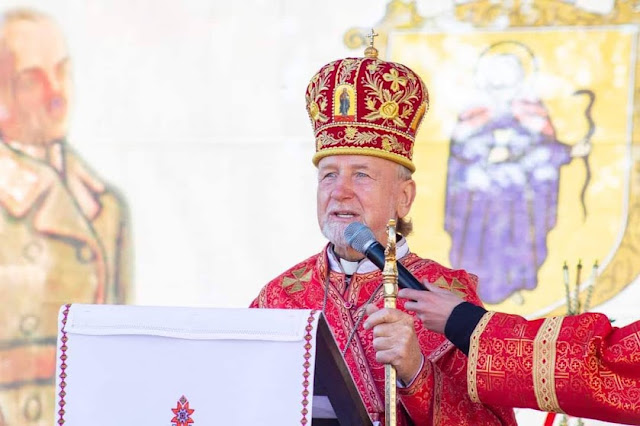«We are still a long way from the time when our conscience can be certain of having done everything possible to prevent crime and to control it effectively so that it no longer does harm and, at the same time, to offer to those who commit crimes a way of redeeming themselves and making a positive return to society.»
Cit. from the Message of His Holiness John Paul II for the Jubilee In Prisons, Juhn,9, 2000 р. Б.
Beloved in Christ!
Prison pastoral care has been an opportunity for many chaplains, volunteers, and the Church herself to deal with painful wounds inflicted by crime and severe consequences for victims of crime or suffered losses. Administration of justice renders those people minimal assistance to recover from their injuries. They are ignored, except when they are called as prosecution witnesses.
Priests, parish communities and the Church are called to pay attention to the needs of the victims. To go carefully and patiently through the journey of healing with them as they mourn their losses and need to strengthen their spirits to encourage them to overcome their anger and turn our society from revenge to true justice.
Very often we hear calls and demands for retribution in the form of the most severe punishment or even the death penalty for the offender, which is said to "satisfy" the loss of the victim or his loved ones. In fact, this is not the case. Retribution cannot make up for losses and will not heal.
Prison chaplains must work hard to ensure that the Christian charity service for prisoners in society is not mistaken for justifying crimes. Responsibility, rehabilitation and recovery should be the motto of every prison pastor.
As a religious community, we are called to offer support to victims of crime. And to do this in preaching and in direct ministry. It is in this way that the Church becomes a place of restoration for all who suffer the consequences of loss.
The abbots and volunteer helpers of the parishes are called to provide pastoral care and prayerful accompaniment to these people in order to make up for the state of alienation and neglect they often feel in society. In this way, victims and their families will be able to find a safe environment in parish communities for spiritual renewal and overcoming grievances. The silent victims of crime are the families and children of prisoners. They often live in poverty, rejected by society for being related to a prisoner, and at risk of physical and emotional injury.
The causes of crimes are complex. Ways to overcome violence are not easy. There is a high probability that we will be misunderstood. But the basis for a proper response is the recognition that the dignity of the human person applies to both the victim and the offender. For us, the crimes and destruction they bring raise fundamental questions about the nature of community, personal responsibility, sin, and redemption. A distinctly Christian approach to these issues can offer society a different way of treating crime, its victims and perpetrators. However, we approach this topic carefully and modestly.
We express our gratitude and support to those who dedicate their lives and talents to the protection of victims of crime and restorative justice: chaplains and prison service volunteers, police and correctional officers, prosecutors and judges, and lawyers. We call on all people of good will to join them in their new commitment to prevent crime and restore society. Christians need to be especially sensitive to the call from Matthew 25: "For I was... In prison, and ye visited me." We also want to stand in solidarity with the victims of their pain and loss, insisting that everyone treat them with compassion and help them achieve healing.
It is not without reason that the forgiveness of the guilty is in the middle of the Our Father prayer. The Lord Himself tells us, "Blessed are the merciful, for they shall obtain mercy." We must pray for this, that we, sinful mankind, may enter through the gates of God's mercy. And God will always give a reward worthy of our changed heart.
† Mikhail Koltun,
Head of the Military Chaplaincy Department of the Patriarchal Curia of the UGCC
*According to the resolution #5 of the 51-st session of the Synod of Bishops of the Kyiv-Halych Supreme Archbishopric of the UGCC (Chortkiv, July 13-14, 2010)
Prison Pastoral of the UGCC


